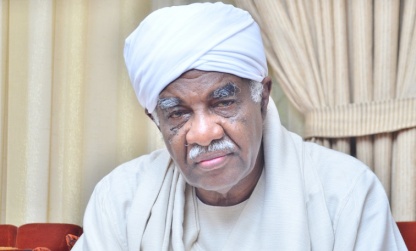Opinion
Then what’s next for Sudan after successive crises and the loss of control over the helm?

Dr. Ibrahim Al-Amin
…In his book Power and Wealth in Sudan: From Independence to the Uprising, Tim Niblock pointed out in the introduction that Sudanese politics after the uprising is once again entering a dangerous historical turning point. The fall of Nimeiry raises an old and pressing question: In which direction will events unfold in this vast country, rich in its economic potential and important strategic location? The author described Sudan’s political movement as reflecting boundless diversity and richness, despite successive governments’ attempts to restrict its activities, stifle its vitality, or reframe it within bureaucratic structures under the supervision of the authorities and in line with their ideas and programs. Nevertheless, political awareness among the Sudanese masses remained vibrant and alive. This was reflected in the diversity of political movements and their connection to the challenges that have faced the country over the past half-century. These movements revolve around developed and coherent political ideologies, drawing strength from a well-educated base and an active, powerful trade union movement within a society marked by cultural diversity and openness to external cultural influences. This was before the arrival of the Inqaz regime, which benefited from the mistakes of previous authoritarian systems. From the very first day, it began dismantling the alternative (political parties) and civil society organizations using coercive means. The destruction extended to state institutions (the civil service) and the armed forces, with the aim of eliminating the nation-state and building a party-state. To address this issue, power must be returned to the people.
Democracy is our choice.
The nation-state as an institution was originally founded on the theory of the social contract: land, people, and laws governing the relationship between the people within this land.
The modern state serves as a neutral intermediary between competing groups and individuals within society, acting as the authority capable of protecting all citizens from violations of their dignity or rights. The nation-state represents the public interest and does not allow individual or factional interests to dominate the political process. By distributing decision-making centers across multiple interests, each involving different actors and interests, it protects political pluralism, thereby enhancing the breadth of freedoms and rights.
The political process:
Politics is the prudent management of public affairs, aiming to serve society. A political program should reflect the people’s aspirations and societal needs, and successful politics is one that can harness all efforts to reach the right decisions. It seeks to involve all relevant parties in decision-making, encouraging them to share responsibility and urging them to execute decisions. Political decisions involve circulating capital and expertise, and political elites are capable of compensating for resource deficiencies and ensuring balanced borrowing, whether of expertise to manage production and service operations.



